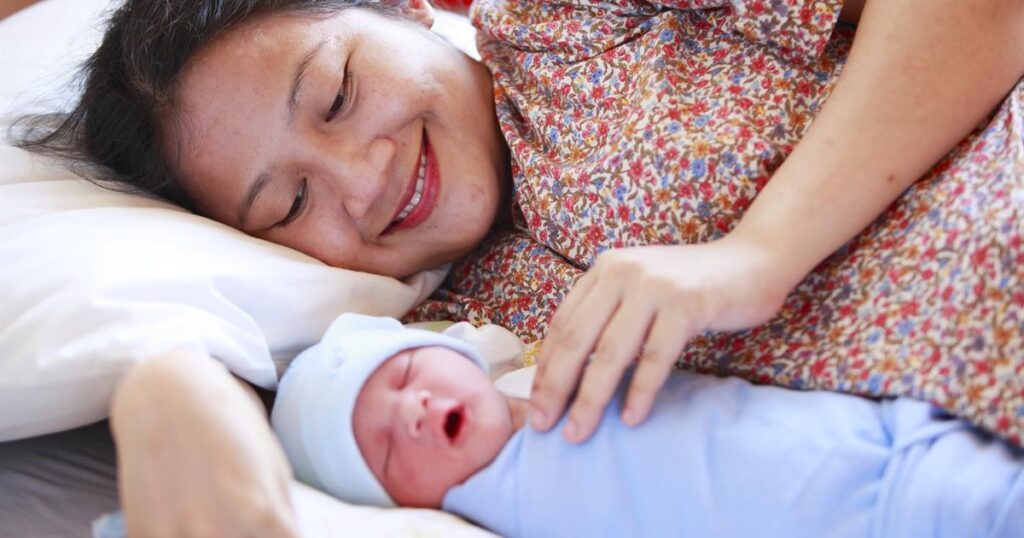Introduction
Postnatal care, also known as postpartum care, is a critical phase in a woman’s journey after childbirth. It encompasses the support, monitoring, and guidance provided to mothers during the weeks following delivery. Proper postnatal care is essential for physical recovery, emotional well-being, and successful adaptation to the demands of motherhood. In this article, I delve into the significance of postnatal care, emphasizing its role in healing and nurturing both mothers and newborns.
Why Postnatal Care Matters


- Physical Healing and Recovery:
- After the intense experience of childbirth, a woman’s body needs time to heal. Postnatal care promptly addresses any physical discomfort, pain, or complications.
- Perineal healing: proper wound care for episiotomies or tears.
- Perineal care after childbirth is crucial for healing and preventing infections. Here are some essential steps:
- Gentle Cleaning: Shower daily, using water to clean the perineal area. Pat it dry with a clean towel.
- Hydration and Diet: Drink plenty of water to avoid constipation. A fiber-rich diet with fruits and vegetables is recommended.
- Uterine involution: monitoring the uterus as it returns to its pre-pregnancy size.
- Breast health: supporting breastfeeding and addressing any issues like engorgement or mastitis.
- Breast health after childbirth is essential for new mothers. Here are some key points:
- Engorgement: Initially, your breasts may become full as milk production starts.
- Monitor Changes: Consider any unusual lumps, pain, or discharge.
- Remember, taking care of your breasts promotes overall well-being during the postpartum period.
- Emotional Well-being:
- The postpartum period can be emotionally challenging.
- Postpartum emotional adjustments are a common experience for new mothers. The weeks and months following childbirth bring a rollercoaster of emotions: joy, exhaustion, confusion, loneliness, anger, and happiness. Hormonal changes, fatigue, and a lack of sleep contribute to this emotional upheaval. Initially, you may feel exhilarated but also overwhelmed by the 24-hour responsibility of caring for your baby. These feelings, known as the “Baby Blues,” are temporary and usually last up to two weeks. However, postpartum mood disorders (PPMD) affect a smaller percentage of women. Symptoms include inadequacy, despondency, anxiety, panic attacks, and feelings of being out of control.
- https://www.healthpartners.com/blog/what-to-expect-after-giving-birth/. Hormonal fluctuations, sleep deprivation, and adjusting to the new role of motherhood can take a toll.
- Depression and anxiety: identifying signs of postpartum depression and providing emotional support.
- Bonding with the baby: encouraging positive interactions between the mother and newborn.
- Transition to motherhood:
- New mothers often feel overwhelmed by the responsibilities of caring for their infants. Postnatal care helps ease this transition.
- Feeding guidance: educating mothers about breastfeeding techniques and feeding schedules.
- Sleep patterns: managing sleep disruptions and fatigue.
- Self-care: encouraging mothers to prioritize their own well-being.
Key Aspects of Postnatal Care

- Immediate Postpartum Period:
- Within the first 24 hours after delivery, close monitoring is crucial.
- Vital signs: checking blood pressure, heart rate, and temperature.
- Bleeding assessment: monitoring postpartum bleeding (lochia).
- First Six Weeks:
- Regular checkups during this period are essential.
- Breastfeeding support: ensuring proper latch and addressing any breastfeeding challenges.
- Physical recovery: assessing perineal healing, uterine involution, and overall well-being.
- Psychosocial support: addressing emotional needs and mental health.
- Family Planning and Sexual Health:
- Family planning and sexual health are crucial considerations after childbirth. Here’s what you need to know:
- Postpartum Sex: After giving birth, your body needs time to heal. Generally, healthcare providers recommend waiting two to six weeks before resuming sexual activity. Factors like pelvic floor recovery and hormonal changes play a role.
- Contraception: Because it’s possible to get pregnant soon after childbirth, discuss reliable birth control options with your healthcare provider.
- Remember, prioritize your well-being, and communicate openly with your partner during this transformative phase.
Conclusion

Postnatal care is not a luxury; it is a fundamental right for every mother and newborn. By prioritizing postnatal well-being, we contribute to healthier families and stronger communities. Let us recognize the importance of this often-neglected phase and advocate for comprehensive, compassionate postnatal care worldwide.
Remember, healing after childbirth extends beyond physical recovery—it encompasses emotional resilience, bonding, and the joy of nurturing a new life. Let us celebrate the strength of mothers and honor the precious moments of postpartum healing.https://blogs92.com/wp-admin/post.php?post=147&action=edit
Read more: “The Importance of Postnatal Care: Healing After Childbirth”
Hello! Do you know if they make any plugins to assist with SEO?
I’m trying to get my blog to rank for some targeted keywords but I’m not seeing very good success.
If you know of any please share. Appreciate it! I saw similar
article here: Eco blankets